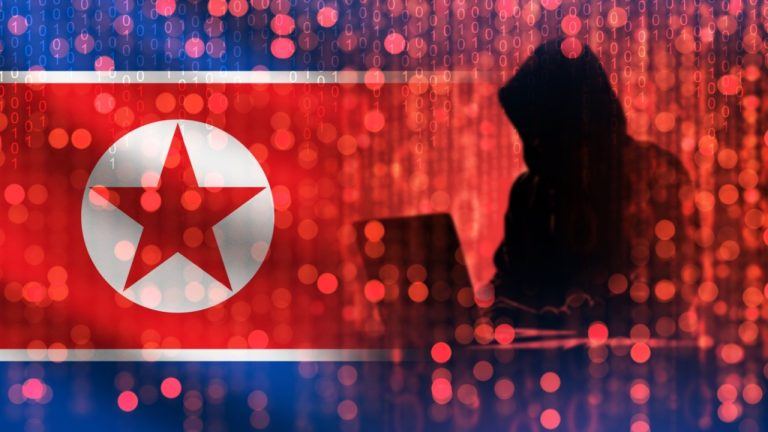How American streaming giants learnt to love Euro programming
11 min readLuxembourgish is considered an endangered language by Unesco. It is almost only spoken in the Duchy of Luxembourg, a statelet with a population of 600,000, equivalent to the city of Baltimore. So bringing a drama in this language to the screen — any screen — might appear a supremely quixotic pursuit. But Claude Waringo tried. And tried. For 35 years.
The film and TV producer’s breakout success was the anti-hero movie De Superjhemp Retörns, about a bookish Luxembourgish civil servant who takes his superpowers from the local delicacy kachkéis, a cooked cheese with the consistency of glue. It sold 63,000 cinema tickets — a sensation within the borders of Luxembourg. But that was the limit. “Most people do not even know Luxembourgish exists,” says Waringo, laughing heartily.
Until, that is, something changed. American subscription streaming services arrived, and a profound shift took place in the entertainment economy. One that affected even Luxembourgish drama.
The moment came in 2020 when Netflix bought Capitani, a cop show that Waringo’s Samsa Films made for RTL television. It is set in a quaint Luxembourg village where the baker gossips, the priest plots and teenagers mope. At one point a balaclava-clad villain dashes past a beat officer, who is too busy eating a croissant to care. Screenwriters drafted characters with specific actors in mind. The Luxembourgish talent pool isn’t deep enough for a casting call.
Yet for a few glorious and implausible days this spring, Capitani was ranked in Netflix’s top 10 by the service’s 200 million worldwide subscribers, according to FlixPatrol, a provider of streaming ratings. In Uruguay and Argentina it was number one. “It’s a huge, huge thing,” says Waringo, 58, who makes most of his films in French and German.
“We produced something like 120 feature films in the last 35 years. We went to all the big festivals, we had prizes at Cannes and Venice. We did it all. But it was nothing compared to this. Nobody really believed it was possible.”
When Netflix launched in Europe almost a decade ago, later followed by Amazon, it offered viewers an alternative to the usual channels, selling direct access to hundreds of thousands of hours of content. Local producers and distributors worried they would lose out to a deluge of expensive US drama series and Hollywood blockbusters.
But as the streaming giants fought to attract and retain subscribers in their new markets, something unexpected happened. They began ploughing money into local industries, commissioning original TV series as well as buying the rights to local language shows such as Capitani.
Last year, more than 60 per cent of Netflix’s exclusive television and films were made outside the English-speaking world, according to Ampere Analysis, a market research group. Since 2019, more than a third of all Netflix and Amazon commissions have been in languages other than English. And Disney Plus, which only launched in 2019, plans to commission 50 local productions in Europe by 2024, from a matriarchal Italian mafia tale to a French sci-fi drama.
It’s a dizzying moment for the old world. The US media giants are gradually rebalancing the playing field for European filmmakers, which has been tilted against them since the rise of Hollywood and talking pictures in the 1930s.
“What can I tell you? They call it the golden era of television. For me, it is more than that. It is the platinum era,” says Marco Chimenz, a managing director of Cattleya, the group owned by the UK’s ITV Studios and behind the gritty Italian crime dramas Suburra and Gomorrah. “Finally, the things we do have reason to be discussed internationally.”
The question is whether the burst of investment — eclipsing what was possible under Europe’s traditionally state-bankrolled market — will be a creative renaissance or mark an era of showy Eurodrama that is widely available but formulaic, placeless and bland. “We didn’t really know if Netflix and Amazon and Disney would eat us up, the whole European system,” Waringo says. “We know [the streamers] will totally change our world. It’s not totally easy to understand where it will go.”
Jörg Winger, fresh from a day in the writers room of his German-language series for Disney, cannot remember his home city’s production industry ever being as busy as it is now. “In 2021, there are expected to be 15 to 20 series that are shot in Berlin alone,” the producer says, rolling his eyes as he explains how hard it has become to book cast or crew.
Five years ago, Winger and his American wife Anne managed what was then a rare feat in Germany’s television sector: international sales. The Wingers’ cold-war spy caper Deutschland 83 won plaudits in 2015 but had only modest ratings on Germany’s RTL. Still, thanks in part to the availability of an English version of the script (the couple drafted in English mainly for co-creator Anna’s convenience before the text was translated into German) it found buyers overseas and became one of the country’s biggest TV exports since the 1970s series Derrick, featuring the bespectacled Kriminaloberinspektor.
Winger says the streaming era loomed large even as Deutschland 83 was being developed, comparing it to the alien craft hanging over Earth in Independence Day. “One of the reasons why RTL commissioned it was because they thought [the streamers] haven’t yet arrived, but they will come here and we have to be proactive,” he says. “But then it turned out to be more complicated.”
After differing with RTL over funding, the Wingers went with Amazon for the Deutschland 86 and Deutschland 89 seasons. But the series was still sold separately outside Germany, to Channel 4 in the UK, Sky Italia and Canal+ in France. Half a dozen trailers for the same series were made by the different rights holders as it bounced around fragmented television markets.
Winger’s latest for Disney Plus is a full-blown streaming experiment. Sam — A Saxon is a “hero’s journey” based on the life of East Germany’s first black policeman. It is the kind of series HBO or Channel 4 would happily carry. But for Disney, the exporter supreme of Hollywood blockbusters, it is a bet on non-English-language drama that breaks with tradition. Its interest is twofold: pulling in subscribers with local content while backing stories that might have global appeal.
In the past, local-language film and television were seen as a risky bet by international distributors and investors. In the UK and US, subtitled content from Europe was a niche product destined for limited release in art house cinemas or bound for film fanatics’ DVD libraries. Europe’s producers survived by cobbling together budgets from national broadcasters, government subsidies and private investment. Foreign-language shows were rarely prime time.
Streaming changed all that. Sofia Helin, the star of The Bridge, describes it as “the liberation”. Rather than a gamble, non-English-language shows became one of an infinite number of niches on Netflix or Amazon. Breakthrough Nordic crime dramas such as The Bridge and The Killing helped prove there was a market for well-plotted and -acted programming in any language. Better dubbing and subtitling made them more accessible too. And as Netflix and Amazon grew their libraries, data showed that audiences were more open-minded about programmes in other languages. Measured in hours, Netflix says translated viewing of non-English content jumped fourfold between 2017 and 2020.
Held aloft on a pole as long as two grown men, a boom microphone hangs over a soldier crouching in thick mud. White shire horses, spattered with grime, stand alongside a column of men, rifles upright, marching to the trenches. Carried by coronavirus-masked operators, a camera pans across the scene.
Filmed in May on the outskirts of Prague, the set of All Quiet on the Western Front is as grimly recognisable as any well-funded American war movie. What makes it unique is not immediately apparent. After an Oscar-winning Hollywood adaptation in 1930, and a British film for television in the 1970s, the classic antiwar novel by Erich Maria Remarque is finally being dramatised in its original German.
The project, more than a decade in gestation, started as a classic Hollywood movie pitch: an English-language screenplay with Harry Potter star Daniel Radcliffe initially attached. But the script only secured financial backing last year after it was reconceived as a German production, with German dialogue and German actors.
Director Edward Berger approached buyers, telling the industry website Deadline that “people want authenticity. There is no way this film could be made today in a language other than German.” Netflix snapped it up and backed a budget reported to be about $20m, which is modest for Hollywood but almost 10 times that of the median European movie.
Where once European talent almost always had to go to the US to achieve international success, writers, actors and directors are finding they can now command budgets and audiences almost as big by staying on the continent and working in their native languages or even in languages they don’t know.
Lupin, a drama based on France’s classic gentleman thief, was conceived as a project in its authentic language but written by George Kay, a British showrunner with a level of French that he described to The Times as “really not that good”. According to Netflix, it was the service’s most-viewed show in the first quarter of 2021, with 76 million views in its first month.
David Kosse, the Netflix executive overseeing international films, says his team often delivers the same message to European producers and writers: “Be ambitious in your theme. Be ambitious in your storytelling and be ambitious in your production values. And we can give you a global audience.”
Kosse is pitching Netflix, to be sure, but the message is effective because it addresses the historic constraints of media-making in Europe.
“Take Italian films. If people see six Italian films over 10 years and all of them are kind of low budget, they think it is an Italian film,” says Kosse, who has produced and distributed films across the continent, from Mamma Mia! to Amélie. “There is no reason an Italian movie can’t have the scope and scale of an American one. The crews are there. The talent is there. What we’re learning is that when you have [the money], people go: ‘Oh, it wasn’t the Americanness I was attracted to, it was the scope and scale.’”
Within national markets in Europe, Netflix still tends to be outspent on television shows by local broadcasters, even with an extraordinary $17bn content budget worldwide. But in the coronavirus-hit world of European film, Netflix is now one of the biggest funders of non-English productions.
Kosse has a number of projects in the pipeline, including spy thriller Munich, based on Robert Harris’s bestselling book, and Army of Thieves, a German-American zombie movie developed by Zack Snyder, the Hollywood director who made zombies run in 2004’s Dawn of the Dead. Tellingly, a spin-off of the apocalyptic thriller Bird Box, one of Netflix’s most popular movies, will be made in Spanish rather than its original English. The motivation: to serve a Spanish-speaking audience, while at the same time expanding the Bird Box universe into different locations and cultures.
After decades of Hollywood trade being “a one-way street”, Winger notes that few imagined that the advent of streaming would leave big American players needing “foreign-language shows as much as English drama”. As a business model, streaming ultimately depends on scale — on the global platforms carving up more than a billion subscribers worldwide. The US market alone, which is already relatively mature, would never be enough. And winning over local audiences requires local content.
But the risks of these new economic incentives are plain: that films and TV will veer off into the vapid mid-Atlantic, losing cultural nuance, authenticity, the zip of a great show.
“Yes, Netflix are putting money into the local industries but they’re trying to get a product out of it that is marketable everywhere,” says Mareike Jenner, the author of Netflix and the Re-invention of Television. “This is about the 190 markets that Netflix operates in. The product has to work for Americans but it also has to work for Brazilians and Italians . . . They have developed what I call a grammar of transnationalism, where they’re essentially trying to broaden the appeal as far as possible by de-emphasising the local.”
She points to Sex Education, a Netflix show filmed in the UK with British actors, but which follows many of the visual and narrative conventions of an American high school drama. “One of the characters has a storyline about how he wants to get an athletic scholarship to university,” she says — a phenomenon far rarer in British higher education than in the US.
Winger argues that creating drama for a US company does not mean a script cannot be complex or locally specific. “You can be a little bit mysterious with global audiences. Not everyone has to understand every detail. If you try to do that it becomes dull, you take the edge off. It’s a very, very slippery slope.”
Such worries are shared by Helin, a Swedish actress who became an icon in Britain for her portrayal of Saga Norén, the unconventional detective in The Bridge. With small children and little interest in social media, she was oblivious to the initial whoosh of stardom about a decade ago. Then the invites started to arrive from London. When one woman met her at a Scandi noir festival sporting Saga-style leather trousers — and driving a signature sage-green Porsche 911 — the penny dropped. “It was very overwhelming,” she says, on a video call from her own car (which looks more like a Volvo).
The original Danish-Swedish version of The Bridge was pre-streaming. It counted success in remakes of its cross-border sleuthing: US-Mexico, Britain-France, Germany-Austria and even Malaysia-Singapore. But Helin’s original show was denied the kind of US release it would get with streamers today. “You know, I still get letters from connoisseurs in America who have somehow found the series,” she says.
Helin also wants to highlight the potential downsides of this streaming “liberation”. “The way the business has developed, sometimes I’m scared, concerned that it is all going too fast and we are just throwing up stories without thinking of what kinds of signals we give out,” she says. “We can never keep doing this much content and be successful economically if we lose the heart, the humanity.”
Helin’s most recent series, Atlantic Crossing, is a rich historical drama, exploring the wartime relationship between the exiled Norwegian crown princess Martha, played by Helin, and a smitten Franklin Roosevelt. It has pride of place on the schedules of various public broadcasters, including PBS in the US.
Streamers made generous offers to fund the show, according to Helin. But producer Cinenord, given the national resonance of the story, went for a coalition of public broadcasters from Norway, Sweden and Denmark. “I think they made a wise decision but the hardest decision: to say, ‘OK, we go with a lower budget,’” says Helin.
It is a reminder of how crucial public funding and tax breaks have been for Europe’s entertainment industry. Helin recalls only a couple of projects in her career that were not taxpayer backed. The European Audiovisual Observatory estimates direct public funding accounted for a quarter of all financing for films made in 2017, rising to 54 per cent in smaller markets. Broadcasters, often publicly funded, provided the other big chunk.
Streaming has left this established system somewhat at sea. Local-content quotas, the weapon of choice for culture-warrior politicians, are starting to look obsolete. Market incentives for a Netflix or an Amazon to buy local shows seem strong enough. Tax breaks and subsidies may also need rethinking, especially if they pad the profits of Amazon, Netflix and Disney.
Incumbent broadcasters are calling for regulatory protection so their services are not eclipsed. But Iceland’s premier perhaps better caught the mood last year when she wrote to Disney with a big demand: subtitles. By the end of this month, not only will there be Icelandic subtitles on hundreds of Disney titles, but some dubbing too.
Alex Barker is the FT’s global media editor
Follow @FTMag on Twitter to find out about our latest stories first






